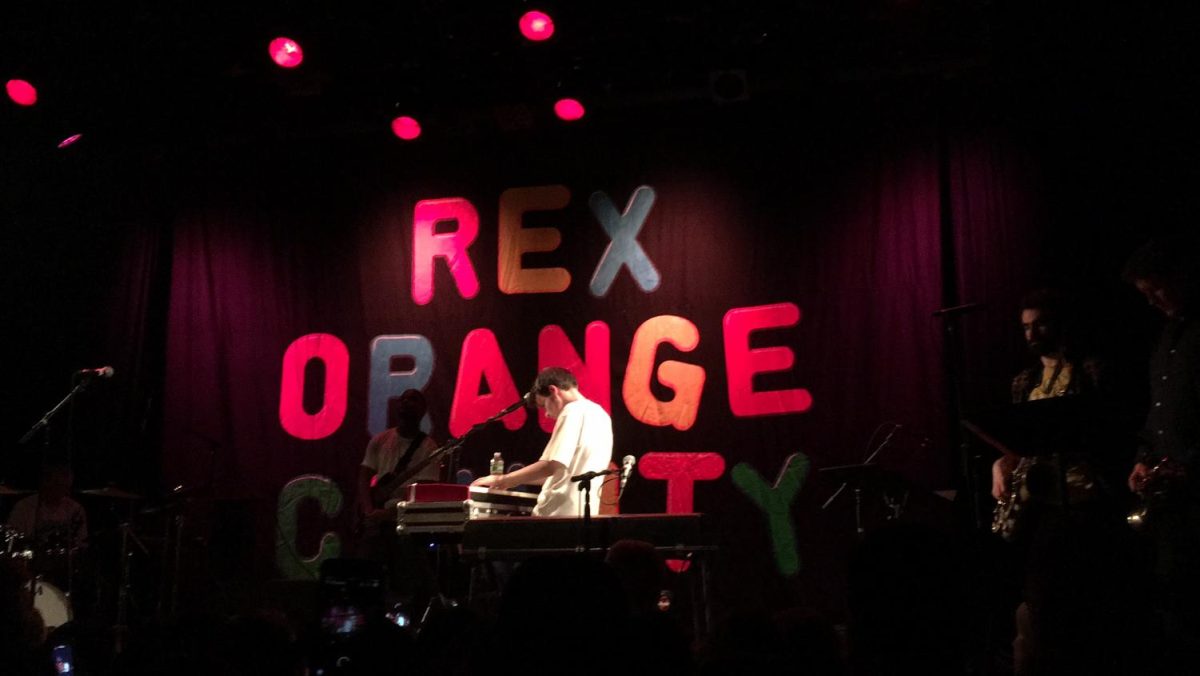The cover for “The Alexander Technique” consists solely of a manila folder set against a sterile, white background, the album’s title inscribed down the side. Its first song, “Alexander,” initially appears just as clinical as its visuals: Alexander James O’Connor, the face behind Rex Orange County, describes a visit to the doctor to treat his chronic back pain. He is handed a piece of paper asking him to detail his “health, wellbeing and the state of [his] life,” and claims, “I told the truth, I’m only lying to myself if I should lie / So, I answered everything and did my best to keep it real in bеtween the lines.”
Listeners are invited to crack open that file across “The Alexander Technique,” which consists of 16 tracks ruminating on O’Connor’s musical and personal journey that prove more colorful than the album’s cover initially lets on. Released on Sept. 6, the record is equal parts sincere and self-conscious, with conversational lyricism that leaves listeners privy to the back and forth going on in O’Connor’s head.
“Alexander” acts as a prologue to the subsequent “Guitar Song,” where O’Connor reminisces on the more stagnant days of his youth. Set against images of California and melancholy, the incessant teenage demons of self-doubt and comparison feel fresh to the 26-year-old artist. He reflects on old feelings of naivety: “I remember being 16, didn’t know a thing with open eyes / I couldn’t take the pain but I was old enough to try.” The song concludes with “I can’t go far / And they can’t go far,” establishing his belief that things — and his feelings — have stayed the same. These lamentations are set to a rich backing track, which begins with subtle guitar and gradually builds in depth. Saxophone, clarinet and bass collaborate to create a tune that increases in texture.
One of the album’s strengths is its instrumentation, which oscillates between crisp, indie-rock technicality and muted, softer tones that feel reminiscent of bedroom pop. “The Table,” which features an earthier, acoustic ambience than other songs on the album, also provides moments of more tech-heavy production that make the song especially dynamic. He takes a lens of introspection to the inconsequential, beginning with the table he presumably sits at: “Wondering exactly which tree gave itself, and more importantly / Who sat beneath that tree? / Which lovers carved initials?” This philosophy is then applied to the people around him as he contemplates their lives and connections. It’s a feeling familiar to anyone who’s experienced the bustling solitude of city living. The production bleeds sentience into O’Connor’s already poignant lyricism, making “The Table” one of the most resonant tracks on the record.
O’Connor’s voice also thrives in “4 In The Morning,” which is largely sung a cappella with minimal instrumental accompaniment. Through layered vocal harmonies, he conjures the image of an aimless late-night walk and a longing for satisfaction and clarity: “And someday I’ll come forth and show a different side / And people will look at me and see the person that I wish they’d really see.”
The song “2008” pays homage to the more genuine self O’Connor describes earlier in the album. It recounts a “simpler time” of car rides and mindless music consumption to the tune of hazy acoustics and a cutting drum rhythm. Through a whirlwind of contemporary artist references — “And we got Tha Carter III from Wayne / 808’s from Yе” — the nostalgia of being 10 years old seems to provide a source of comfort for O’Connor, who implores listeners, “Free your mind and treat it kindly” despite the weight and torrent of responsibilities that build as we age, a sentiment he aims to adopt for himself.
The idea of reckoning with one’s sense of self through ongoing change reigns consistent throughout O’Connor’s album — a theme that remains strikingly relevant, given that “The Alexander Technique” is his first album since 2022, when six charges of sexual assault were raised against him and dropped following investigation. Although he made a public statement upon his acquittal, the artist also addresses the events on his album in the song “Carrera,” which reflects upon his experiences at the end of the investigation. While O’Connor does not directly mention these events, he describes having “Been waiting for the closer / For one thing to be over” at the song’s outset, and expresses dread at a nebulous “it” — “On the phone, they told me it was finally over / 6:30 in the evening / Overwhelmed with closure.”
With five albums now under his belt, O’Connor reflects on his growth as an artist alongside his growth as an individual. While “The Alexander Technique” doesn’t see O’Connor find a prognosis for his back pain, nor a specific route plotted out to resolve his other ruminations on life and change, he asserts that these changes are, in the end, inevitable. He plods forward, providing a frank and layered look into his own experiences with nostalgia, doubt and feelings of stagnance in the wake of events that changed the trajectory of his career. His honesty and unique musical stylization feel familiar but more focused than his past discography, making the new album worthy of recognition.
Contact Eleanor Jacobs at [email protected].

























































































































































